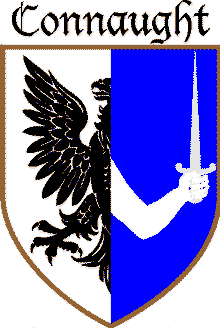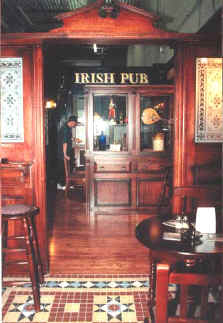|
|
Hell or Connaught Irish Pub, NE |
|
|
|
Céad Míle Fáilte (a Hundred Thousand Welcomes)! |
|
|
|
Irish Pub in Northeast Washington DC Hell or Connaught(To). This phrase, usually attributed to Cromwell, and common to the whole of Ireland, rose thus: When the settlers designed for Ireland asked the officers of James I. where they were to go, they were answered “to Hell or Connaught,” go where you like or where you may, but don't bother me about the matter. -- from infoplease.com The majority of the Catholic nobility and gentry were banished; the remainder of the nation, thus more than decimated, were sent to Connaught. On the 26th of September, 1653, all the property of the Irish people was declared to belong to the English army and adventurers, "and it was announced that the Parliament had assigned Connaught [America was not then accessible] for the habitation of the Irish nation, whither they must transplant, with their wives, and daughters, and children, before 1st May following, under the penalty of death, if found on this side of the Shannon after that day." It must not be supposed that this death penalty was a mere threat; I shall give instances to prove the contrary. Any man, woman, or child who had disobeyed this order, no matter from what cause, could be instantly executed in any way, by any of these soldiers or adventurers, without judge, jury, or trial. It was in fact constituting a special commission for the new comers to murder all the old inhabitants. Connaught was selected for two reasons: first, because it was the most wasted province of Ireland; and secondly, because it could be, and in fact was, most easily converted into a national prison, by erecting a cordon militaire across the country, from sea to sea. To make the imprisonment more complete, a belt four miles wide, commencing one mile to the west of Sligo, and thence running along the coast and the Shannon, was to be given to the soldiery to plant. Thus, any Irishman who attempted to escape, would be sure of instant capture and execution. -- From An Illustrated History of Ireland by Margaret Anne Cusack In Irish the province is usually Cúige Chonnacht, meaning the province (literally, the fifth) belonging to the Connachta dynasty. Ireland had five provinces until the Norman Conquest, and the dynasty claimed descent from the mythical king Conn. An alternative anglicised spelling which was officially used during English and British rule is Connaught.[2] In 1874 Queen Victoria granted the title Duke of Connaught to her third son, and could trace a descent from the Connachta.[3] In Irish mythology up to the early historic era, Connacht, then including County Clare, was known as Cóiced Ol nEchmacht. It is said that the tribe of the Fir Bolg ruled all of Ireland right before the Tuatha Dé Danann arrived. When the latter arrived in Ireland (which the Fir Bolg called Ériu) and demanded land, the Fir Bolg king refused. When the Fir Bolg were defeated, the Tuatha Dé Danann were so touched by the courage of their enemy that they would give them a quarter of Ireland. They chose Connaught. -- from Wikipedia To Hell or Connaught by Cruachan Young Ned of the Hill by The Pogues
|








